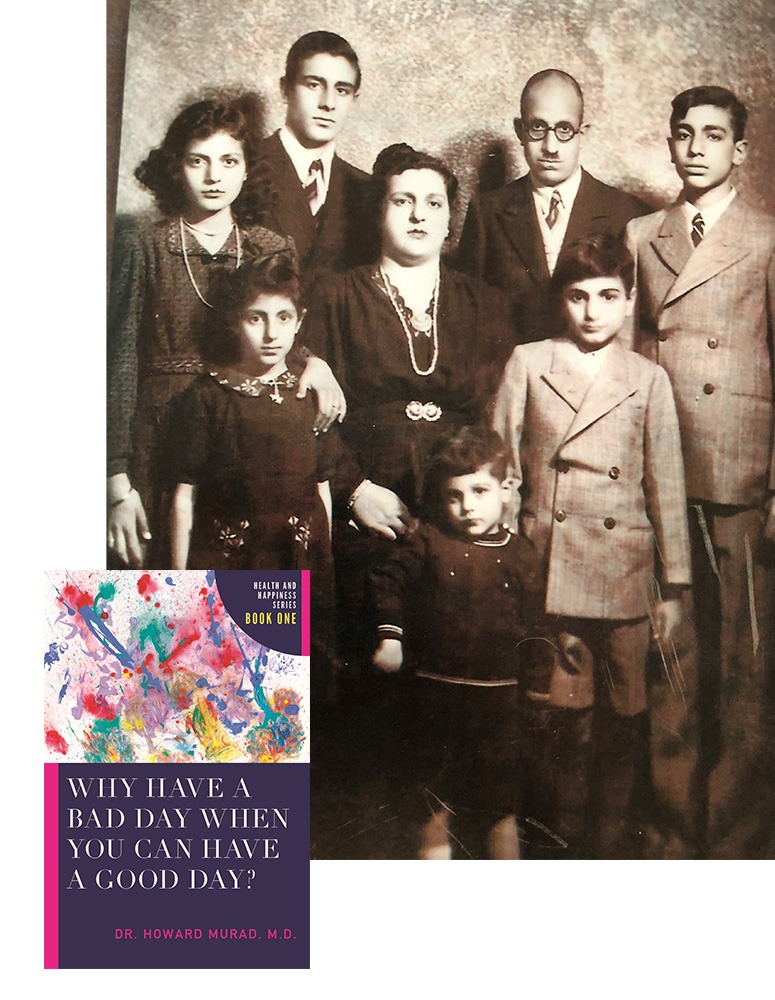Today is Father’s Day: Here’s How to Honor the Dad You Had
Today is Father’s Day—a day when we honor the men who raised us. Although my own father died nearly 20 years ago, just a few days shy of his 100th birthday, I’m taking some time to reflect on the gifts I received from him.
As my friends may know, I’m the youngest of six children, born into a family that had to flee Iraq in 1946, when I was just seven years old. Although my father had been a successful businessman in Baghdad, he had to leave his business and all our possessions behind when we escaped to the United States in the hopes of making a new life in our adopted homeland. My father found a low-paying job as a message deliveryman in Manhattan and struggled to raise us all in a cramped 600-square-foot apartment in Queens. Yet despite our reduced circumstances, I never heard my father complain, nor curse his lot in life.
Our situation was so precarious that sometimes by the end of the week we didn’t have enough to eat. I remember that on one occasion all we had was onions. But my father said, “If all we have is an onion, then we’ll eat onion sandwiches and be full.” His example made me realize that if I took a risk and failed, I could still survive on whatever was left to me and be full. Ironically, his example made me into the entrepreneur I am today — one who doesn’t give up even when I encounter failures.
Another example of my father’s refusal to accept defeat is the subject of my book, Why Have a Bad Day When You Can Have a Good Day. My father taught me this on the day he was mugged in the subway on the way home from work. Somebody took the few dollars he had on him, beat him up, chipped his teeth, and broke his glasses. He barely managed to drag himself up the steps to our tiny apartment. My mother and the rest of us were frantic, because he really was in terrible shape. But he would have none of our distress. “Don’t worry about it!” he said. “My left leg still works!” No matter what life dished out to him, he was determined to focus on the positive. I feel grateful to have learned that lesson from him at an early age.
My father was not a perfect man, by any means. In fact, none of us is perfect. Throughout my career, many patients have told me about the neglect or poor treatment they received from their fathers. Sometimes their fathers neglected or abandoned them. Sometimes they didn’t acknowledge or accept the person they were becoming. The worst stories involved outright cruelty at the hands of men who were supposed to love them.
Although my patients’ stories have saddened me, when I follow my own father’s example, I try to encourage my patients to focus on the positive they could glean from even the poor examples these men set. In some cases, these fathers taught their children to develop their own strength, even though they didn’t receive the encouragement they wished for at home. In other cases, these fathers taught their children how NOT to be: to be kind, rather than cruel; to be encouraging, rather than intolerant; to be present in the lives of their loved ones, rather than burying themselves in work or other addictions.
I once read a study of people in leadership. It said that many leaders were inspired by someone early in life who believed in them, whom they did not want to disappoint. Nearly as many, however, were motivated by someone who didn’t believe in them—who thought they would fail. These leaders succeeded in order to prove their naysayers wrong.
So whatever kind of father you had, this Father’s Day I hope you will reflect on at least one positive lesson you learned from him. Then you might even try releasing him from the ways he may have disappointed you. When you accept that you might not have gotten the father you would have liked and yet you survived; you’re still here; I hope it will free you to move forward, reassured of your own strength and worth.
After all, why have a bad Father’s Day when you could have a good Father’s Day?
